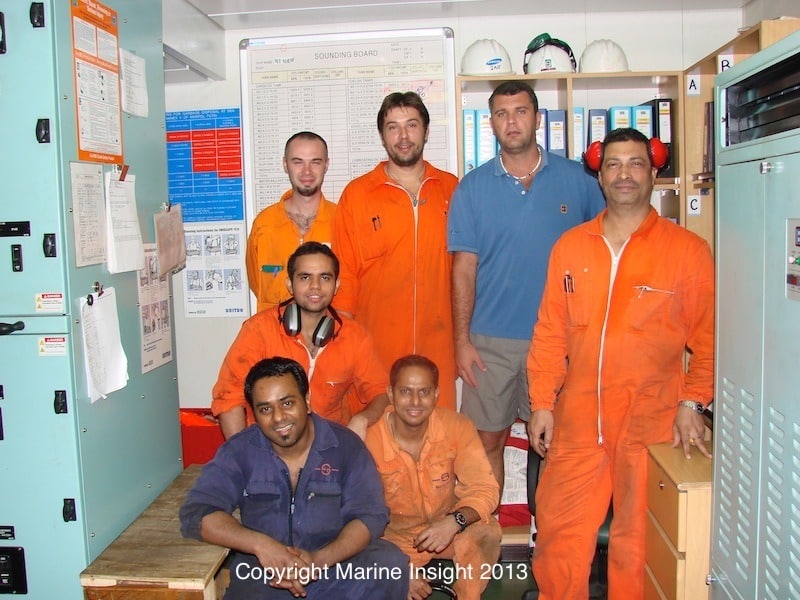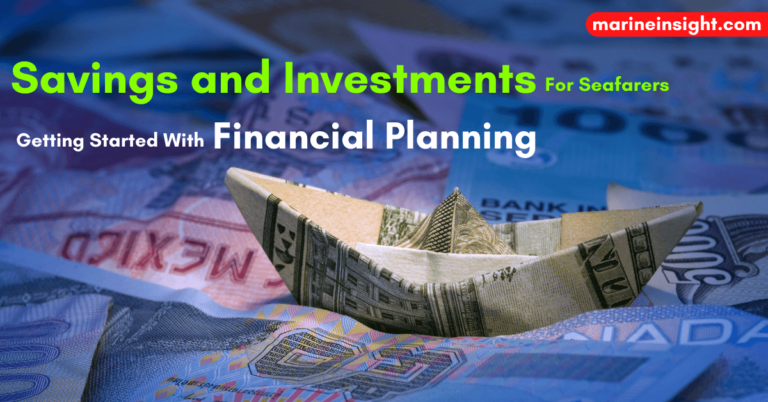So far in the last 5 articles I have taken you through the maze of Financial World and tried to familiarise you with the various aspects of the same; just the way you are taken for a familiarisation round, when you join the ship.
aceace
Even if you join a new ship for the umpteenth time, you will always be taken for the familiarisation- similarly, if you are dabbling in various savings and investments plans, you will do well to read the previous FIVE articles before proceeding with this one.
Here’re links to previous articles: – Importance of Financial Planning for Seafarers , 10 Common Financial Mistakes Seafarers Make , Little Know Facts About Magic Of Savings Seafarers Should Know , 4 Types of Investments That Kill Seafarers’ Hard Earned Money & Insurance – What Seafarers Must Know Before Purchasing.
Now let’s get on with savings and investments..
What are Savings and what do we mean by investments? We keep hearing the two terms interchangeably; does it mean both are same?
It took me quite a while to learn to differentiate between the two and had to form a definition of my own for the purpose of explaining to my daughter and other colleagues whom I had introduced to finance. Once again, this definition may not exist in any book.
When you keep a part of your earnings (or pocket money from your parents) and keep it away in a piggy bank, proper bank, under the mattress or in the backyard under the apple tree – it is called SAVINGS. It may earn some fixed interest or it may not, but it will still be called Saving.
Money does not change its form and largely remains in the same currency till you decide to exchange it. Savings are usually risk-free but offers very little by way of increase, may not be tax efficient and WILL NEVER keep up with the inflation. This means, that the real value of your money will always come down with time and in the long term.
When seafarers buy shares, land, flat, house, gold or give it to someone for business as a loan with a promise of share of his profits (whether he gives it to you or not is entirely different question)- the currency immediately changes form and takes the form of ASSET that they have purchased. This is called INVESTMENT. The value of this investment can remain same, go down or increase infinitely. All these avenues and many more are called INVESTMENTS.
So to start with, it should be clear that we have to split our limited money between both Savings and Investment. In my earlier articles, I explained about schemes where money is destroyed because of low returns. But since there is always an inherent risk with ALL types of investments, we have to wisely split our earnings between Savings and Investments.
In investments, we will slowly learn that we will have to spread our money across all sectors i.e. Real Estate, Shares or Mutual Funds, Gold and any other asset that you may learn about later on.
About savings, I have already discussed enough about utilising your money and putting it in the most efficient avenue where you can get a relative interest rate, be safe and tax efficient.
We shall elaborate more on investments now.
Once the money has been earned you may first save it and then channelize it for your investments.
I shall first discuss about Shares and Capital market Investments, because this is the most popular but risky form of investment. However it is a necessary avenue and if we understand it well and look for the right way to move, it will prove to be the best friend for you.
INVESTMENTS- IN COMPANIES
This will form the most important chapter of the series where we will start to discuss the maze “out there” which is called Investments. Those who are already familiar with this field may also continue reading as there is bound to be some useful information for them.
A country is dependent upon its infrastructure and facilities that it can offer. This is the reason that we treat the western countries as advanced and also feel the comfort and convenience as our country develops and progresses.

This infrastructure and facilities in terms of material resources and benefits such as Banking, Petro products, Health facilities and medicines, Capital or Industrial goods, Consumer goods and all other things not covered by the list are provided by companies which are either Public Sector(Government owned) or Privately controlled or Private Sector. When the public sector company needs money to manufacture or any other need, Government simply takes a portion out of the taxes which citizens pay and gives it to the Public Sector Company calling it- it’s own money. It can also go the way as described next of the private companies.
If a Private Limited Company needs money it can raise it in quite a few ways:
- Taking Private Loans: these can be taken from Private money lenders or Financial Institutions like IFCI, IDBI and Mutual Fund companies which have special funds for lending which will give it to them on a certain fixed rate of interest, depending upon the term and risk profile of the company.
- Company Fixed Deposits: Like Bank fixed deposits the companies issue fixed deposits which are not secured by anyone except the reputation of the company. Hence obviously the lesser known or risky companies will offer a rate of interest which is higher than safer companies.
- Debentures: These are also of various categories and offer a fixed rate of interest to the investor. This rate of interest may be more than the bank but is taxable and not always open for the NRIs or expatriates.
- Shares: Are the most popular form of raising capital by a company and are also most liquid and most risky as in common language.
By purchasing a share of any company, the individual becomes an investor and a shareholder in that company, regardless of the quantity of shares owned. It is essential to mention these four financial instruments as they will be a part of our investment philosophy.
In the event of a company going bankrupt, the funds recovered from selling the company are distributed in the following order of priority: creditors are paid first, followed by Fixed Deposits, then Debentures, and finally, any remaining amount is distributed to the shareholders. Shareholders are considered partners in the business with the owners, known as Promoters after a company goes public.
This highlights the gravity of investments made in these instruments, especially now with the ease of online transactions. It is crucial to understand the legalities involved before investing.
Shares of a company can be purchased either during an Initial Public Offering (IPO) or after the company is listed on an exchange. Opening a Demat and Trading account allows individuals to buy shares easily.
However, selecting the right company to invest in can be daunting, considering the vast number of options available on exchanges. It is important to research and monitor various factors that can affect stock prices, such as political and economic conditions.
While investing in stocks can be profitable, it also carries risks, as seen in cases like Satyam and Bhushan Steel. It is recommended to mitigate risks by taking gradual steps and seeking advice from informed professionals.
Mutual Funds offer a simpler and more efficient way to invest in the capital market, especially for beginners. Understanding the market and setting clear investment goals are essential for successful investing.
This article serves as a foundation for future discussions on investing, with a focus on mutual funds. It is crucial to conduct research and adapt investment strategies based on individual circumstances and market conditions. It will help us to spread awareness and enhance your own knowledge about your future planning. Are you a seafarer seeking sound advice on financial planning? Ask the expert by clicking here to ask a question.

